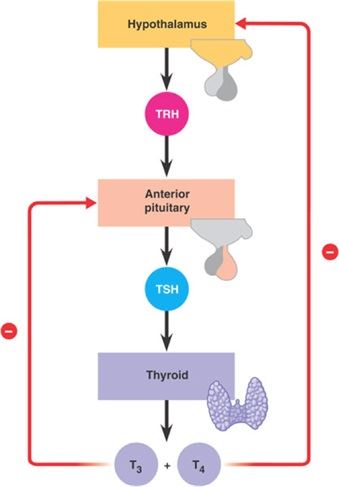Explaining the role hormones, the essential role of hormones is that of a messenger. Hypothalamus is a branch of forebrain where numerous volume of neurosecretory cells is available. These neurosecretory cells are concentrated in the secretion of a hormone known as neuro hormones. They arouse the anterior lobe of the pituitary to produce various other hormones. Many times, hormones act more like a controller than a messenger. The changes in the level of hormone production result in certain changes in the body. Thus, hormone as a controller maintains the homeostasis of the body. Once the hormones meet needed to target, their production needs to be regulated and this is attained by a mechanism known as a feedback control mechanism. This feedback mechanism could either be positive or negative.

Hormones also regulate various biological activities like growth, development, reproduction, energy use and storage, and water and electrolyte balance. They stand as molecules that act as chemical messengers in the body’s endocrine system . Hormones are formed by some organs and glands and are secreted into the blood or in bodily fluids. Most hormones are transported by the circulatory system to a different part, where they influence specific cells and organs.
Apart from the hormones affect distant cells, they can also influence neighboring cells. Hormones act on local cells by being secreted into the interstitial fluid that surrounds cells. These hormones then diffuse to nearby target cells. This type of signaling is called paracrine signaling. This journey a much shorter distance between where they’re secreted and where they focus.
For instance, the Thyroid gland produces a hormone known as thyroxine, and its secretion is managed by the Thyrotropin Releasing Hormone from the hypothalamus and the Thyroid Stimulating Hormone from the anterior pituitary. When the level of thyroxine in the blood decrease, hypothalamus encourage the thyroxine secretion by encouraging TSH secretion. This stands at a positive feedback mechanism.
If hypothalamus continues to arise thyroxine production, it might result in a high level of thyroxine in the blood. This passes negative feedback to the hypothalamus to decrease or stop the TRH and TSH secretion that controls the thyroxine level in the body. This is a negative feedback mechanism. Hormones are used for their target tissues for particular functions. As soon as they meet their needed target, they are removed. This is majorly done by the liver, kidney and other organs.
